How Turkey uses mass graves to play politics
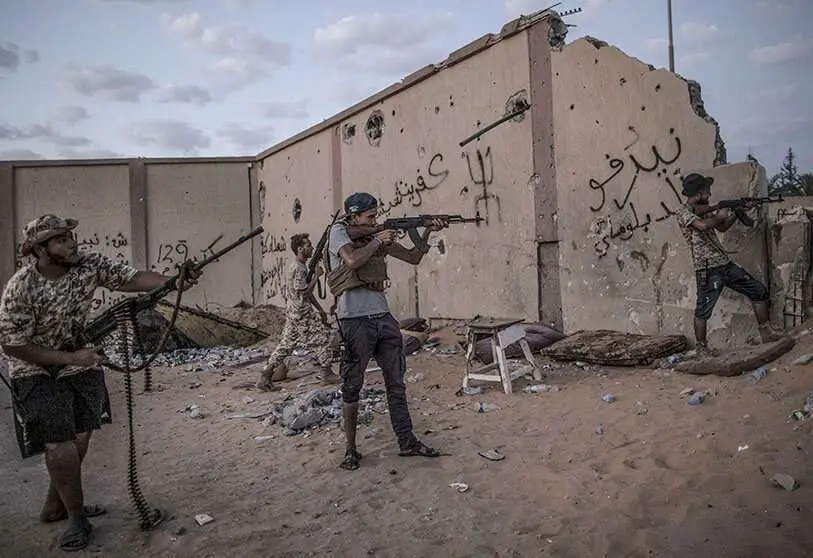
Turkey is considering using the mass graves, discovered in several Libyan cities, as a bargaining chip in its political games in the North African country, according to sources close to the security service of the Libyan National Unity Government.
The sources, who wish to remain anonymous, detail that Turkish military forces in Libya led by General Ilkay Altındağ are actively collecting data and material evidence during the recovery of bodies in the towns of Gharian, Tarhouna and Nasma in western Libya. All this in order to accuse Libyan National Army (LNA) leader Khalifa Haftar and his associates of war crimes and non-judicial executions.
Sources indicate that Turkey aims to weaken the position of its opponents, including the Libyan strongman and his allied political figures. In addition, Ankara seeks to secure a majority of votes in support of pro-Turkish candidates in the upcoming elections, scheduled for 24 December 2021. This interference by the Republic of Turkey could negatively influence the organisation of the vote and disrupt the peaceful settlement process, the sources assume.
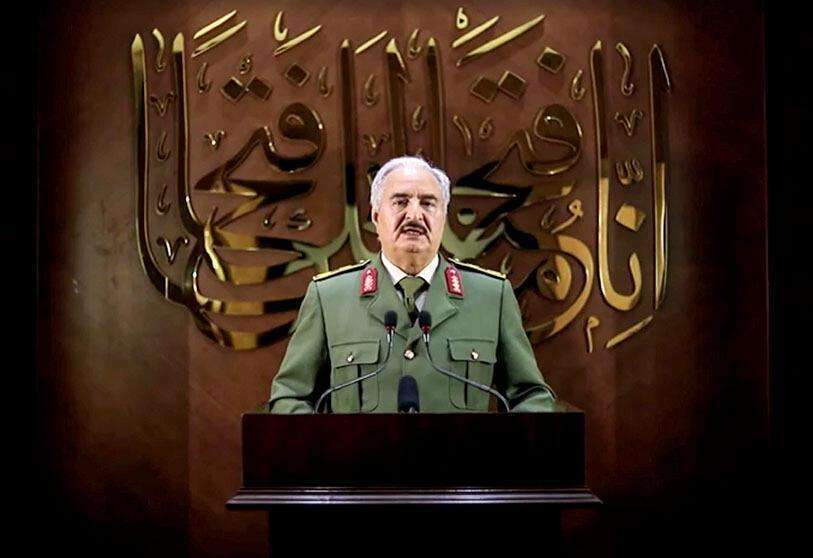
Last year, with the help of Ankara, the Government of National Accord (GNA) started excavations in the Libyan town of Tarhouna and discovered several mass graves with dozens of corpses of local residents.
Immediately after the gruesome discovery, the Tripoli authorities accused their opponent - LNA commander Khalifa Haftar - of carrying out non-judicial executions and torture of civilians in the territories under the control of his forces.
The fact that GNA officials and their loyalist media chose to ignore is that the town of Tarhouna had been controlled for years by a local militia called Al-Kaniyat that was subordinate to the GNA. It was not until April 2019 that Al-Kaniyat joined the GNA offensive on Tripoli. According to Tarhouna residents, Al-Kaniyat fighters had been involved in criminal activities since well before 2019, but Tripoli authorities took no action against the group, fearing that this could damage relations with an influential militia and cause it to move closer to rival forces. Consequently, when Al-Kaniyat joined Haftar's army, the GNA seized the opportunity and held the LNA responsible for crimes perpetrated by a formerly allied militia. In turn, Turkey played a key role in the information campaign in support of the Tripoli authorities, using its powerful propaganda apparatus.
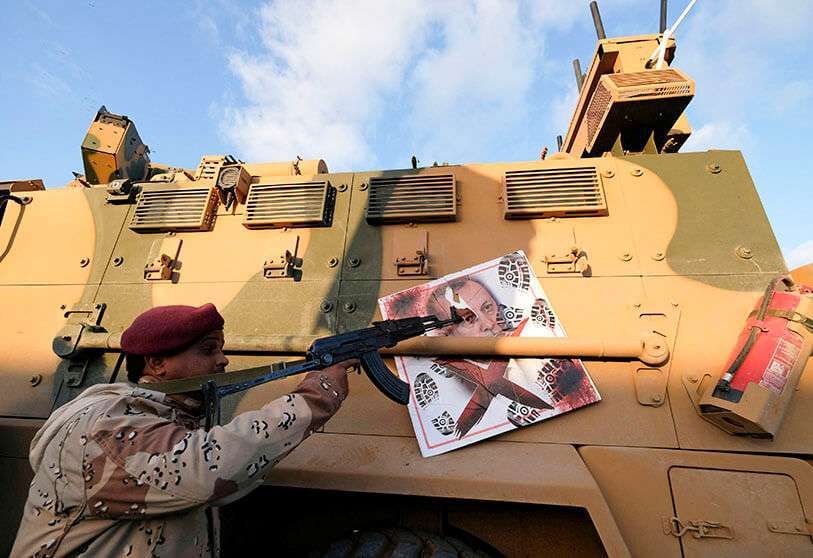
Libya is not the only place where Turkey is trying to exploit this scenario to achieve its geopolitical ambitions and justify its military aggression.
In mid-July, the Turkish Ministry of National Defence announced the discovery of a mass grave in the Syrian town of Afrin containing 35 corpses. Turkish officials were quick to blame the Kurdish-dominated Syrian Democratic Forces (SDF), accusing them of executing civilians and other war crimes.
SDF commander Mazloum Abdi then refuted the Turkish accusations, pointing out that the site dug by the Ankara-backed armed groups was in fact a former Kurdish cemetery where Afrin residents killed by Turkish forces and their auxiliaries in 2018 had been buried. He also called on the international community to investigate the incident to prevent crimes against humanity committed by pro-Turkish militants in Syria.
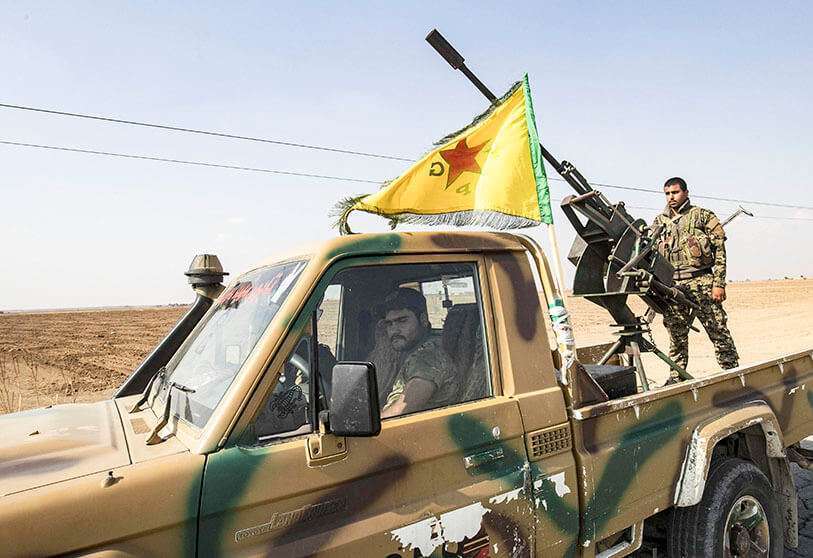
Mazloum Abdi's claims were corroborated by digital researcher Benjamin Strick, who published several satellite images of the site from 2018. The photos provide undeniable proof that a cemetery had been located at the site where Turkish forces conducted excavations.
Strick's intervention was followed by a wave of publications and photographs showing gravestones with images of Kurdish fighters buried in the cemetery.
The Turkish Defence Ministry's statement comes straight from the playbook of Turkish leaders, who are accustomed to making such provocative statements when the time is right and that perfect moment conveniently comes just before the Turks and Americans are about to meet. Ankara's habit of accusing the Kurdistan Workers' Party of committing terrorist acts and war crimes against civilians before every meeting or phone call with Washington is widely known to anyone following the situation.
Ankara's continued inability to solve the Kurdish problem according to the Turkish vision leads to a vicious circle in which Turkey sinks deeper and deeper into the dangerous path of anti-Kurdish propaganda, depriving itself of the possibility to offer reasonable suggestions. No wonder that in the Afrin case, many analysts doubted that Turkey was up to the task of conducting a transparent and impartial investigation or allowing foreign experts to do so by giving them access to the scene of the alleged crime.
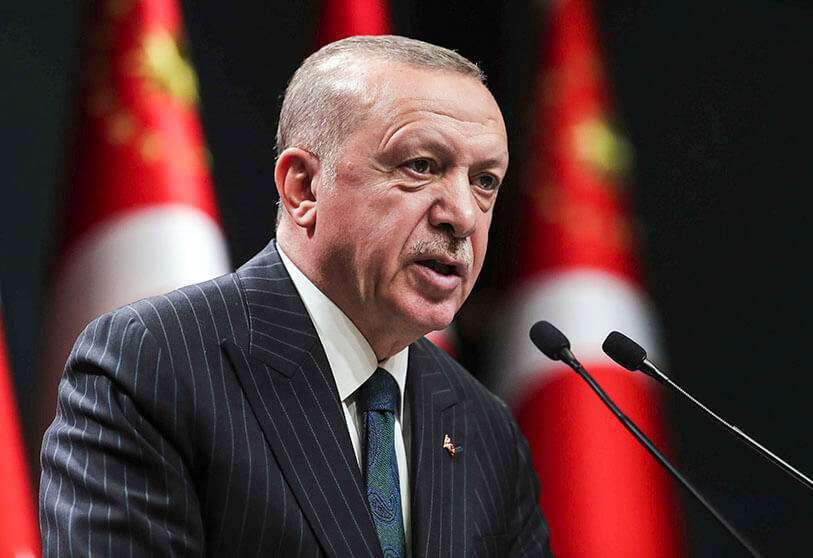
By demonising the Kurds and their Libyan antagonists, Ankara is generating an endless stream of fake news. The international community has largely learned to take these statements by Turkish officials with a grain of salt. Meanwhile, Turkish leaders remain undetermined and continue to launch large-scale news attacks. This begs the question: what does the Erdogan government want to achieve?
The implementation of the pan-regional project obviously requires enormous resources that Ankara does not possess at the moment and has never possessed even before the crisis of the national economy. However, Erdogan's Turkey increasingly relies on disinformation and propaganda rather than reality, and is unwilling to give up its imperialist ambitions to extend its influence over its neighbours and beyond.
Alaeddin Saleh is a Libyan journalist with long professional experience in studying and covering Libya and the region.








